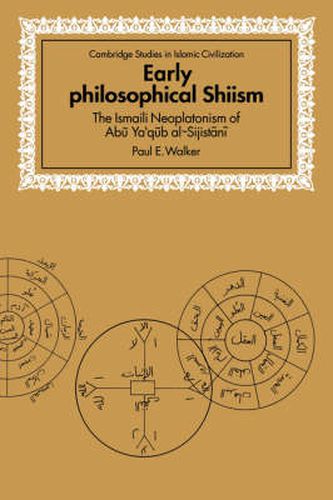Readings Newsletter
Become a Readings Member to make your shopping experience even easier.
Sign in or sign up for free!
You’re not far away from qualifying for FREE standard shipping within Australia
You’ve qualified for FREE standard shipping within Australia
The cart is loading…






The Ismailis, among whom are the followers of the Aga Khan, rose to prominence during the 4th Islamic/10th Christian century. They developed a remarkably successful intellectual programme to sustain and support their political activities, promoting demands of Islamic doctrine together with the then newly imported sciences from abroad. The high watermark of this intellectual movement is best illustrated in the writings of the Ismaili theoretician Abu Ya-qub al-Sijistani. Using both published and manuscript writings of al-Sijistani that have hitherto been largely hidden, forgotten or ignored, Dr Paul Walker reveals the scholar’s major contribution to the development of philosophical Shiism. He analyses his role in the Ismaili mission (da'wa) of that time and critically assesses the major themes in his combination of philosophy and religious doctrine.
$9.00 standard shipping within Australia
FREE standard shipping within Australia for orders over $100.00
Express & International shipping calculated at checkout
The Ismailis, among whom are the followers of the Aga Khan, rose to prominence during the 4th Islamic/10th Christian century. They developed a remarkably successful intellectual programme to sustain and support their political activities, promoting demands of Islamic doctrine together with the then newly imported sciences from abroad. The high watermark of this intellectual movement is best illustrated in the writings of the Ismaili theoretician Abu Ya-qub al-Sijistani. Using both published and manuscript writings of al-Sijistani that have hitherto been largely hidden, forgotten or ignored, Dr Paul Walker reveals the scholar’s major contribution to the development of philosophical Shiism. He analyses his role in the Ismaili mission (da'wa) of that time and critically assesses the major themes in his combination of philosophy and religious doctrine.